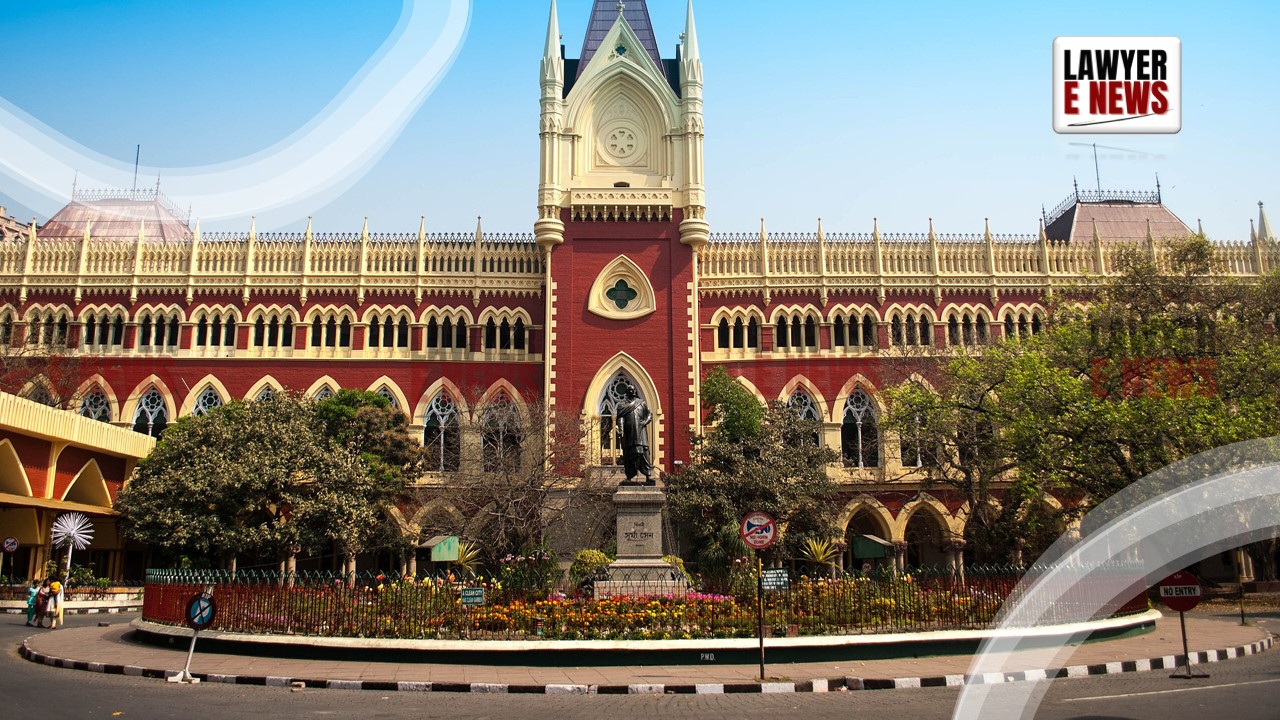-
by sayum
14 February 2026 2:22 PM



Justice Sabyasachi Bhattacharyya sets aside arbitral award, emphasizes necessity of substantial evidence for insurance claims.
The Calcutta High Court has set aside an arbitral award of Rs. 60,00,000/- granted to M/s. Sarada Rani Enterprises by a three-member tribunal for damages due to waterlogging of cement bags. The judgment, delivered by Justice Sabyasachi Bhattacharyya, emphasized the absence of substantial evidence supporting the respondent’s claims and criticized the tribunal’s reliance on a unilateral letter from the claimant.
The dispute arose from an insurance claim made by M/s. Sarada Rani Enterprises for damages to cement bags stored in their godowns, which were allegedly waterlogged. The arbitral tribunal awarded the respondent Rs. 60,00,000/-, relying predominantly on a letter from the respondent dated January 7, 2005. Oriental Insurance Company Limited challenged the award under Section 34 of the Arbitration and Conciliation Act, 1996, arguing that the tribunal’s decision was unsupported by concrete evidence and ignored crucial survey reports.
Justice Bhattacharyya observed that the tribunal discarded two significant survey reports—one by the insurer’s surveyor, Kanak Chowdhury and Associates, and another by a court-appointed independent surveyor, Manabandra Chatterjee. The court found the tribunal’s reliance on the respondent’s letter (Exhibit ‘T’) to be unfounded and arbitrary. The judgment noted, “The letter itself is vague and does not provide a specific quantification of damages, making it insufficient as proof.”
The judgment highlighted the inconsistencies in the respondent’s claims over time, which fluctuated without substantiating evidence. “In view of such inherent contradictions in the claims of the claimant, no reliance can be placed on its unilateral claim as embodied in the letter dated January 7, 2005,” Justice Bhattacharyya stated.
The tribunal had dismissed the insurer’s surveyor’s report on procedural grounds, noting it was not proved in evidence. The court-appointed surveyor’s report was also rejected due to doubts about its authenticity and the methodology used. The High Court found these rejections to be justified but criticized the tribunal for not finding a more reliable basis for its award.
The tribunal’s reliance on the case Gambhirmull Mahabirprasad v. The Indian Bank Ltd. Was deemed misplaced by the High Court. Justice Bhattacharyya explained, “In the present case, the claim was fully quantifiable but lacked foundational evidence. The tribunal’s decision to resort to guesswork was therefore inappropriate.”
Justice Bhattacharyya extensively discussed the principles of evaluating evidence in arbitration, underscoring the necessity of foundational proof for quantifiable claims. The court emphasized that awarding damages based on unilateral and unverified claims defies basic jurisprudential principles.
Justice Bhattacharyya remarked, “The letter of the claimant, even though contemporaneous with the loss, could not be elevated to the plane of proof of such claim. The very absence of any basis vitiates the award by patent perversity.”
The judgment of the Calcutta High Court in this case underscores the judiciary’s commitment to ensuring that arbitral awards are based on solid evidence and rational analysis. By setting aside the award, the court has reinforced the importance of foundational proof in claims and highlighted the perils of reliance on unsupported unilateral assertions. This ruling is expected to influence the evaluation standards in future arbitration cases, promoting a more stringent adherence to evidentiary requirements.
Date of Decision: 19.07.2024
